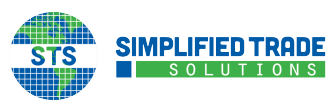NO EEI 30.[specific regulatory section]
The first part, “NO EEI,” means no electronic export information. The second, numerical part, refers to your exempted shipment’s corresponding regulation. Below is a list of AES exemptions.
Most common
NO EEI 30.36: Shipments destined to Canada of any value, not including vehicles. This exemption also does not apply if the shipment requires an export license or permit, is subject to ITAR (International Traffic in Arms Regulations), contains rough diamonds, or is sent for storage in Canada but is ultimately destined for third countries.
NO EEI 30.37(a): Shipments valued at $2,500 or less. (This is per Schedule B classification for commodities shipped from one USPPI to one consignee on a single carrier). You may not use this exemption if your commodity requires an export license or permit, is a used self-propelled vehicle, is subject to ITAR, contains rough diamonds, or is destined to Cuba, Iran, North Korea, Sudan or Syria.
General
NO EEI 30.37(b): This is for tools of trade, items used by employees or representatives of the exporting company to further its enterprises and undertakings. These tools must be 1) owned by the exporting company; 2) accompanying the exporting company’s representative; 3) necessary, appropriate and intended for personal or business use; 4) not for sale; 5) returned to the U.S. within one year from the date of export; 6) not shipped under a bill of lading or air waybill.
NO EEI 30.37(f): Export of technology and software (as defined in EAR 15 CFR 772) that do not require an export license. (Note: mass-marketed software must be filed in AES.)
NO EEI 30.37(g): Shipments of books, maps, charts, pamphlets, and similar articles to foreign libraries, government establishments, or similar institutions.
NO EEI 30.37(h): Shipments as authorized under License Exception GFT for gift parcels and humanitarian donations (15 CFR 740.12(a) and (b)).
NO EEI 30.37(i): Diplomatic pouches and their contents.
NO EEI 30.37(j): Human remains and accompanying receptacles and flowers.
NO EEI 30.37(k): Shipments of inter-plant correspondence, executed invoices and other documents, and other shipments of company business records from a U.S. firm to its subsidiary or affiliate. This excludes highly technical plans, correspondence, etc. that could be licensed.
NO EEI 30.37(l): Shipments of pets as baggage, accompanied or unaccompanied, of persons leaving the United States, including members of crews on vessels and aircraft.
NO EEI 30.37(s): Issued banknotes, securities, and coins in circulation exported as evidence of financial claims.
NO EEI 30.37(t): Documents moving out of the U.S. to facilitate international transactions (airline tickets, internal revenue stamps, liquor stamps, and advertising literature).
NO EEI 30.37(x): Shipments exported under license exception Baggage (BAG) (15 CFR 740.14).
Shipments to the U.S. armed forces
NO EEI 30.39: Shipments consigned to the U.S. Armed Services for their exclusive use, including shipments to armed services exchange systems. This exemption does not apply to articles that are on the U.S. Munitions List (USML) and thus controlled by the ITAR and/or shipments that are not consigned to the U.S. Armed Services, regardless of whether they may be for their ultimate and exclusive use.
NO EEI 30.37(w): Shipments to Army Post Office (APO address), Diplomatic Post Office (DPO), or Fleet Post Office (FPO).
Shipments to U.S. government agencies and employees
NO EEI 30.40(a): Office furniture/equipment/supplies shipped to U.S. government offices for their exclusive use.
NO EEI 30.40(b): Household goods and personal property shipped to U.S. government employees for their exclusive and personal use.
NO EEI 30.40(c): Food, medicines, and other related items, shipped to U.S. government offices/employees for their exclusive use.
Certain shipments to sanctioned countries
NO EEI 30.37(y): This is for certain shipments going to Cuba, Iran, North Korea, Sudan and Syria. It is allowed for shipments of published books, software, maps, charts, pamphlets, or any other similar media available for general distribution to foreign libraries or similar institutions; shipments to U.S. government agencies and employees valued at $2500 or less per Schedule B number; personal effects; individual gift parcels and humanitarian donations; vessels and aircraft lawfully leaving the United States for temporary sojourn to one of these sanctioned countries; and, tools of trade.
But be careful. Most shipments to sanctioned countries, if allowed, require a license and must be filed in Automated Export System.
See the U.S. Foreign Trade Regulations for the complete list of exemptions to use when exporting.
